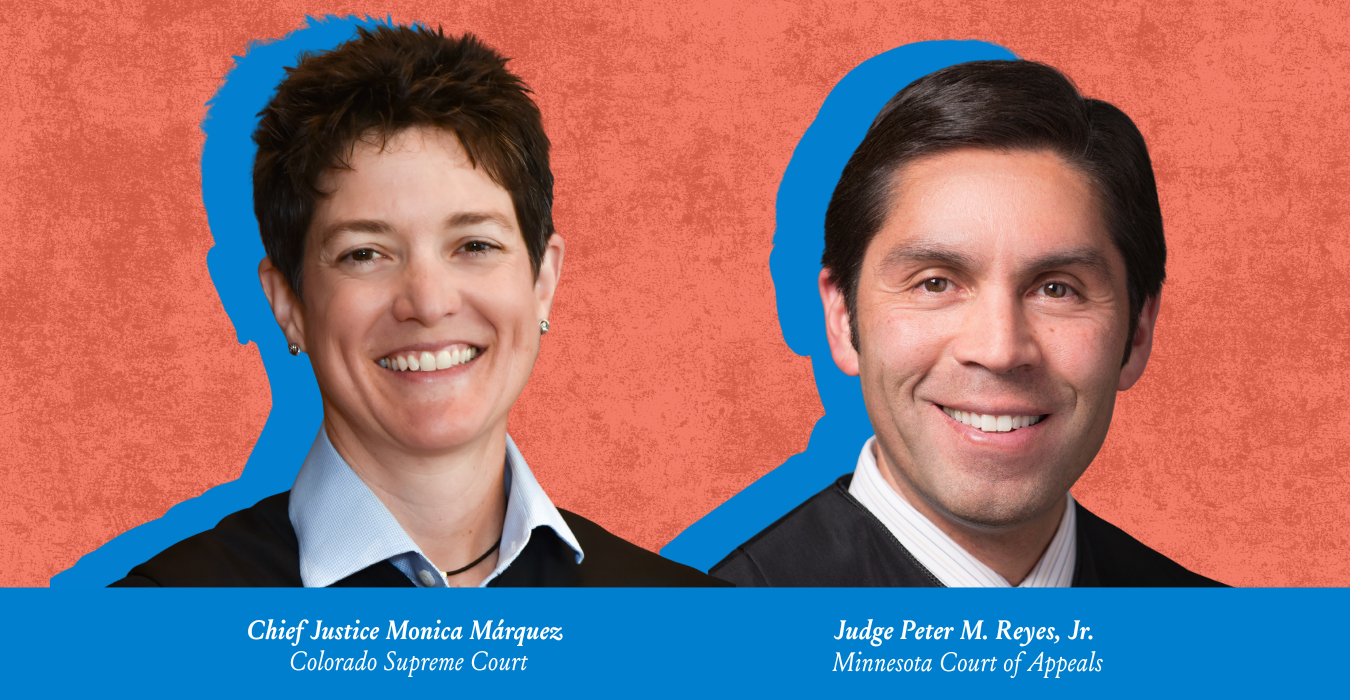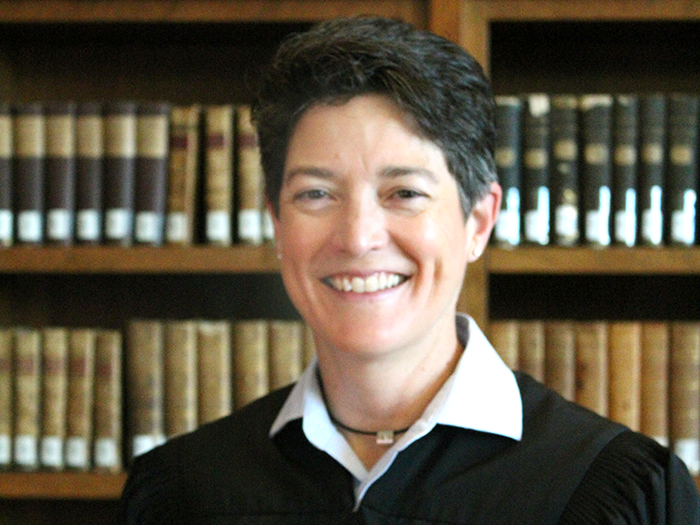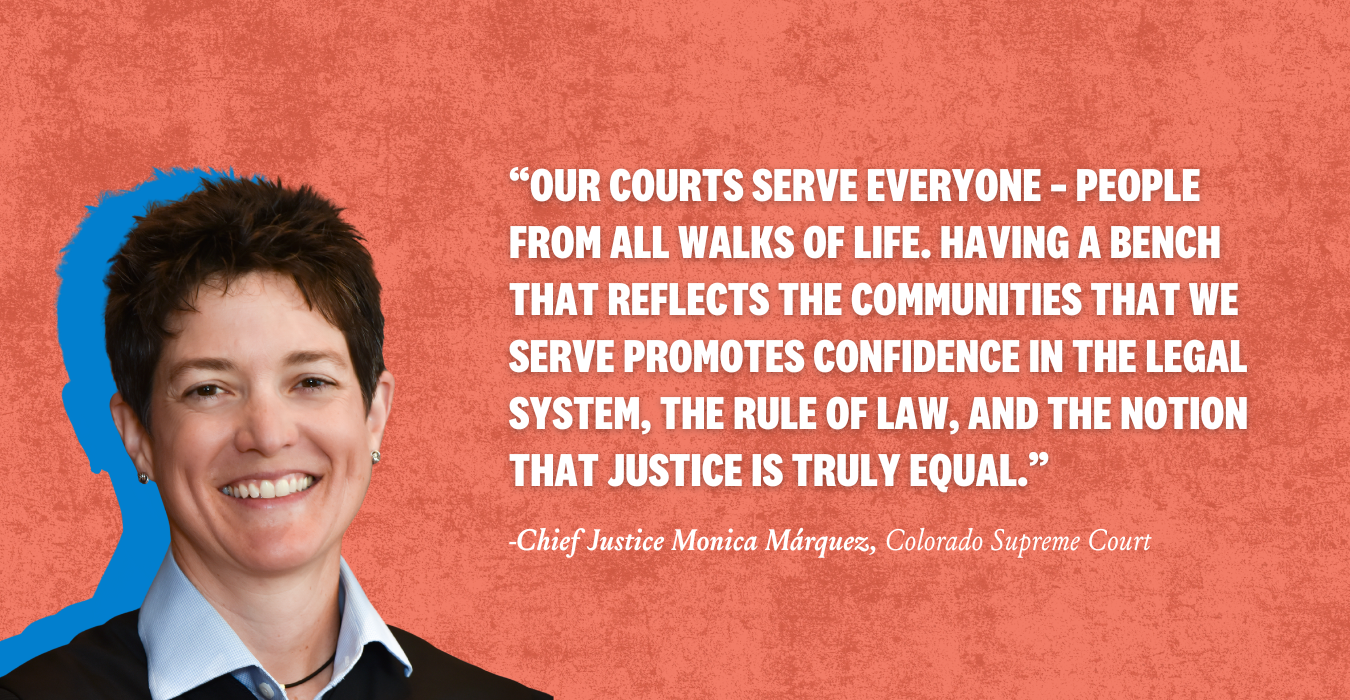Voices of Change: Leaders Forging New Paths in Appellate Law
This Hispanic/Latinx Heritage Month, we celebrate two appellate trailblazers whose diverse lived experiences bring vital perspectives to the bench – strengthening our legal system and inspiring future leaders.
Chief Justice Monica Márquez and Judge Peter M. Reyes, Jr. each charted their own path to the judiciary, demonstrating the transformative power of representation.
Formative Foundations
Family legacies shaped these future leaders in different but equally powerful ways. "My parents dedicated their careers to public service and taught me and my sister the importance of using your talents to make the world a better place," Chief Justice Márquez reflects.
Judge Reyes traces his values to his grandparents, who "emigrated from Mexico to the United States to pursue the American Dream for themselves and their family." Growing up, he learned to navigate cultural identity in an environment that wasn't always welcoming: "At that time, celebrating anything other than an 'American Culture' was seen as a negative. But I learned to embrace and celebrate my culture because it is a very important part of who I am."
Overcoming Barriers with Determination
The path to appellate leadership wasn't without challenges for any of these trailblazers. "I often felt incredibly lonely and unsure that I had any business being there among these students who seemed so brilliant and accomplished," recalls Chief Justice Márquez of her experience with imposter syndrome during law school. "There were very few Latino students, and essentially no other openly LGBT women. There was no one on the faculty at that time who shared my background."
The challenge of being first-generation brought its own obstacles. "I was the first one in my family to go to college," Judge Reyes reflects. Nonetheless, he was able to find a community within his law school, explaining “I also had a strong connection with other non-traditional students who, like me, were working full time and going to school part time. We supported each other because we were all juggling work, school, and even family. We were a very collaborative group.”
Finding Appellate Law
The call to law often came through unexpected moments of recognition. Chief Justice Márquez found her purpose during her service in the Jesuit Volunteer Corps: "The injustices that I both witnessed and personally experienced during my JVC years were what inspired me to go to law school." Later, clerking revealed her true calling: "I discovered I loved the appellate work even more! I was drawn to the intellectual rigor of dissecting the legal issues and figuring out the 'right' answer—and then explaining it in writing."
For Judge Reyes, the journey was more nontraditional. Law was his second career, as he had worked full-time as an environmental scientist before and during law school and originally had no intention of practicing law. The turning point came in the classroom: "I took an intellectual property (IP) course and was hooked.” His connection to appellate work developed naturally through his specialty: "As an IP litigator, appellate work became important to me from the very beginning. I voraciously read the opinions from the Court of Appeals for the Federal Circuit because they set most of the law for IP and patent."
Advice for the Next Generation of Appellate Leaders
These leaders offer wisdom shaped by their lived experiences, reminding us that increasing representation in appellate courts is essential—and achievable.
The foundation begins with personal readiness. "First, take good care of yourself. This is a tough profession, and if you don't prioritize your own wellbeing, it is easy to burn out," advises Chief Justice Márquez. She also emphasizes the importance of mentorship and authenticity. “Find mentors! They make all the difference in your life... Trust that you belong in this profession. Always be your authentic self, and you will shine."
Judge Reyes emphasizes that strategic thinking shapes long-term success. "Believe to achieve! Believe in yourself to achieve your goals. Create a strategic plan for yourself as to where you want to be one year, three years, five years, ten years from now. Have a plan but be flexible and open to opportunities that may come your way."
The Importance of Representation on the Bench
Beyond individual preparation, these leaders understand that lasting change requires expanding opportunities for others. Chief Justice Márquez explains, “Our courts serve everyone – people from all walks of life. Having a bench that reflects the communities that we serve promotes confidence in the legal system, the rule of law, and the notion that justice is truly equal. Having judges who bring a variety of life experiences and perspectives to the table leads to richer, fuller, and better decision making [...] Finally, having a diverse bench not only dispels stereotypes but importantly, establishes role models for all groups. In other words, it's easier for young people to aspire to be something they can see.”
Judge Reyes puts it simply: “Our country is stronger because we have people from a wide variety of backgrounds, experiences, and cultures. This is our strength as a Nation.”
Looking Forward
Thank you to these appellate trailblazers for sharing their stories and wisdom with our community.
This Hispanic/Latinx Heritage Month, we are proud to honor their contributions—and the doors they continue to open for future leaders. Their journeys remind us that progress in appellate law depends on diverse perspectives, bold opportunities, and clear pathways for those who will follow.
At The Appellate Project, we’re excited to support the next generation of appellate leaders who are building on this legacy of service and excellence.





